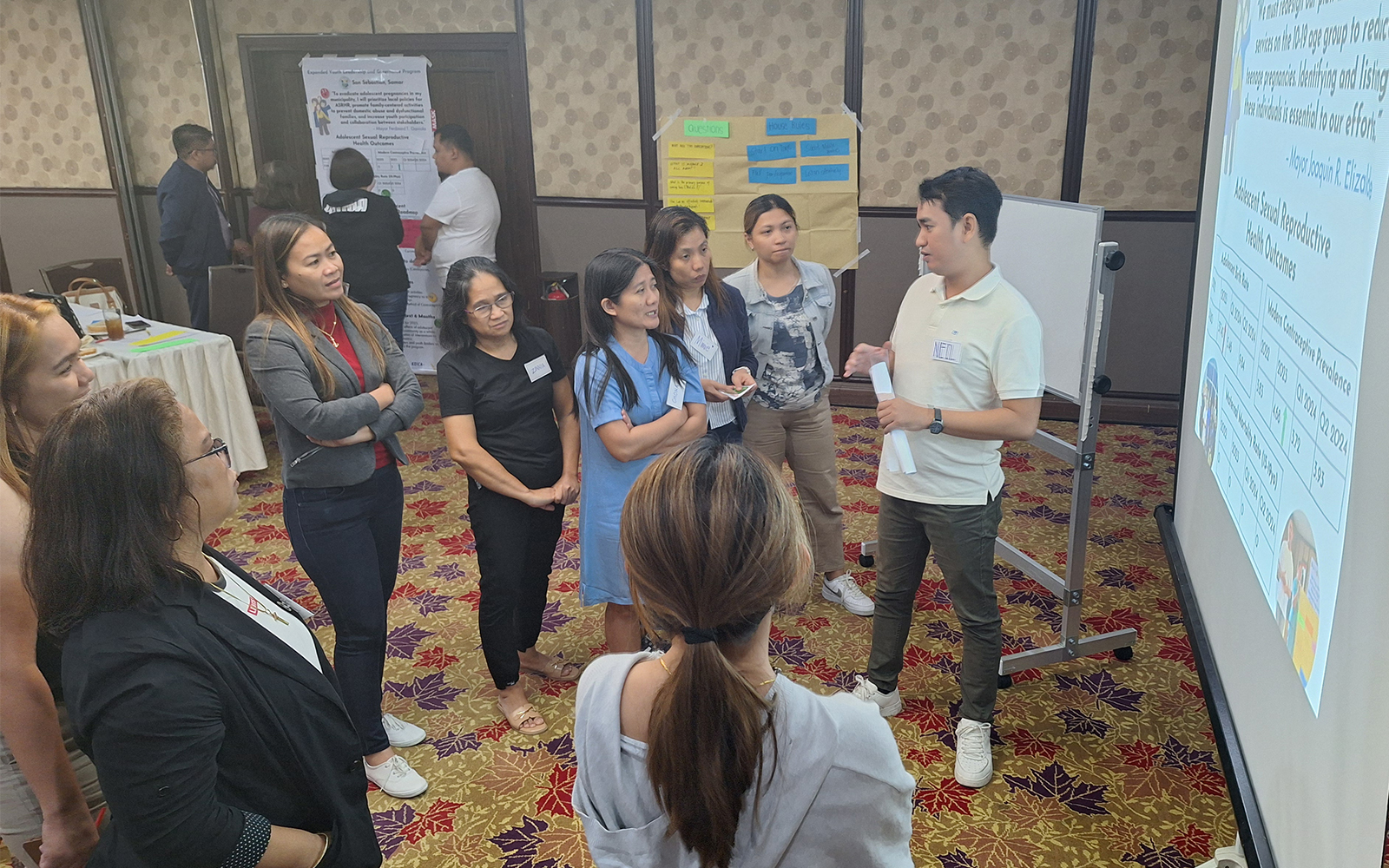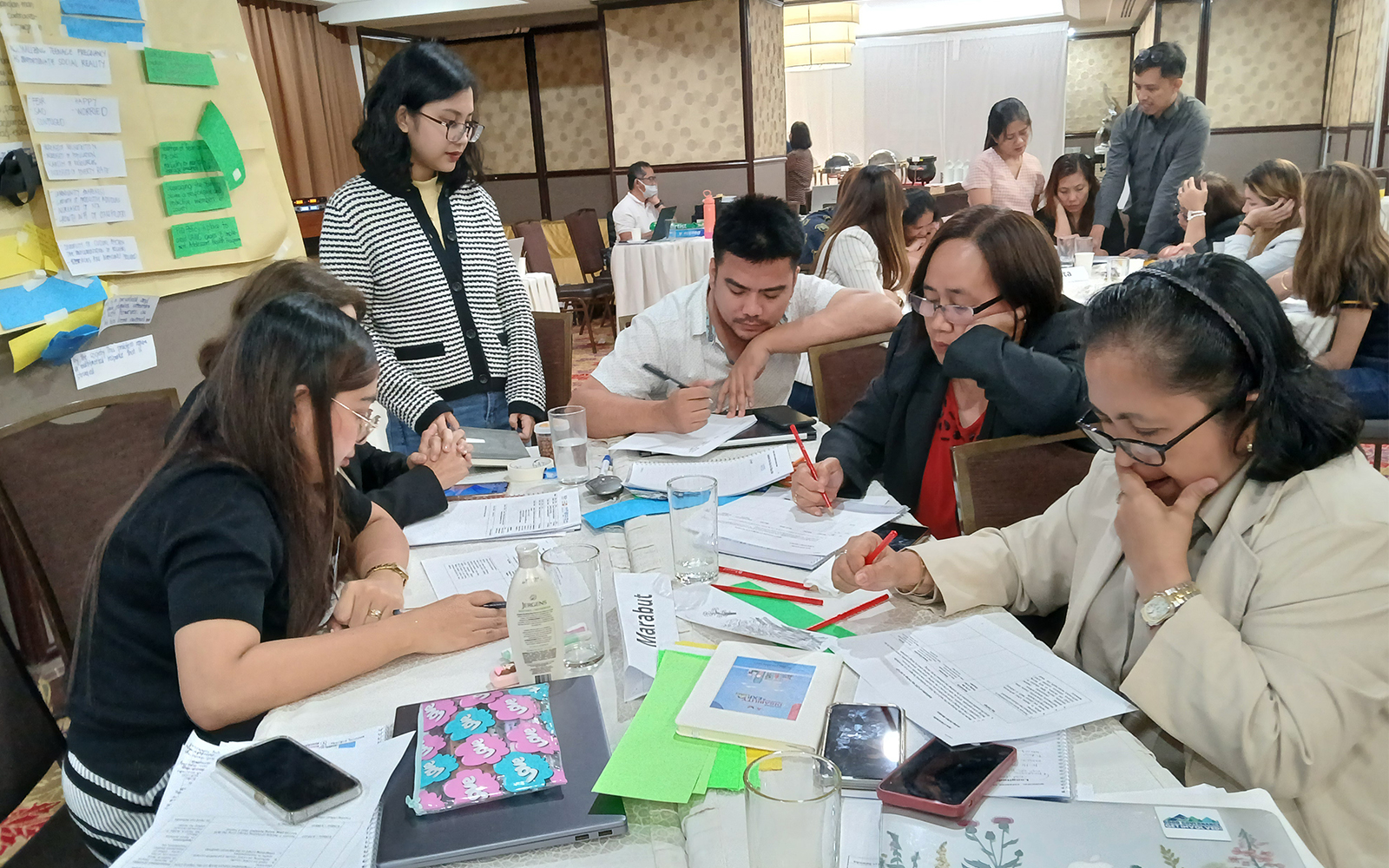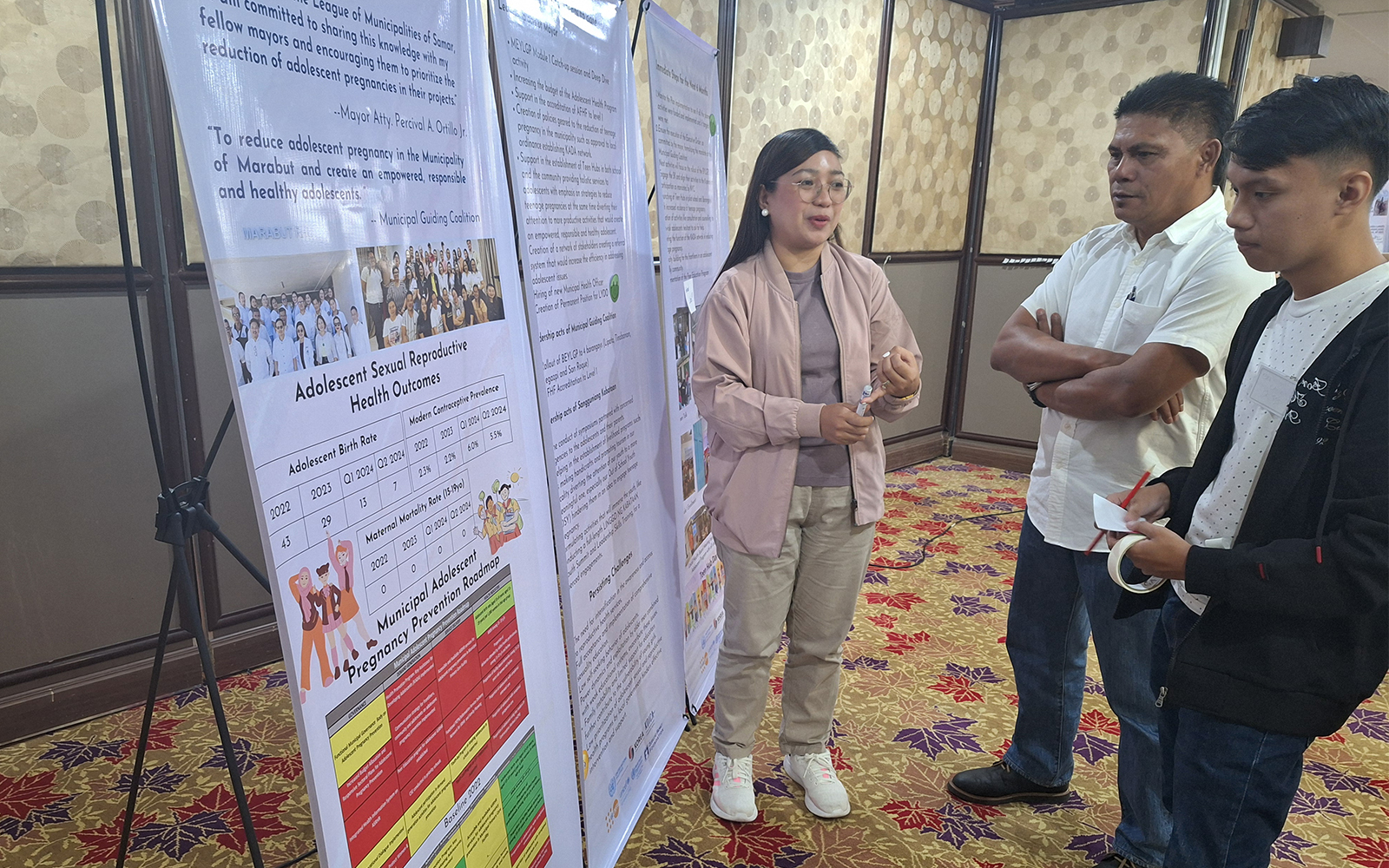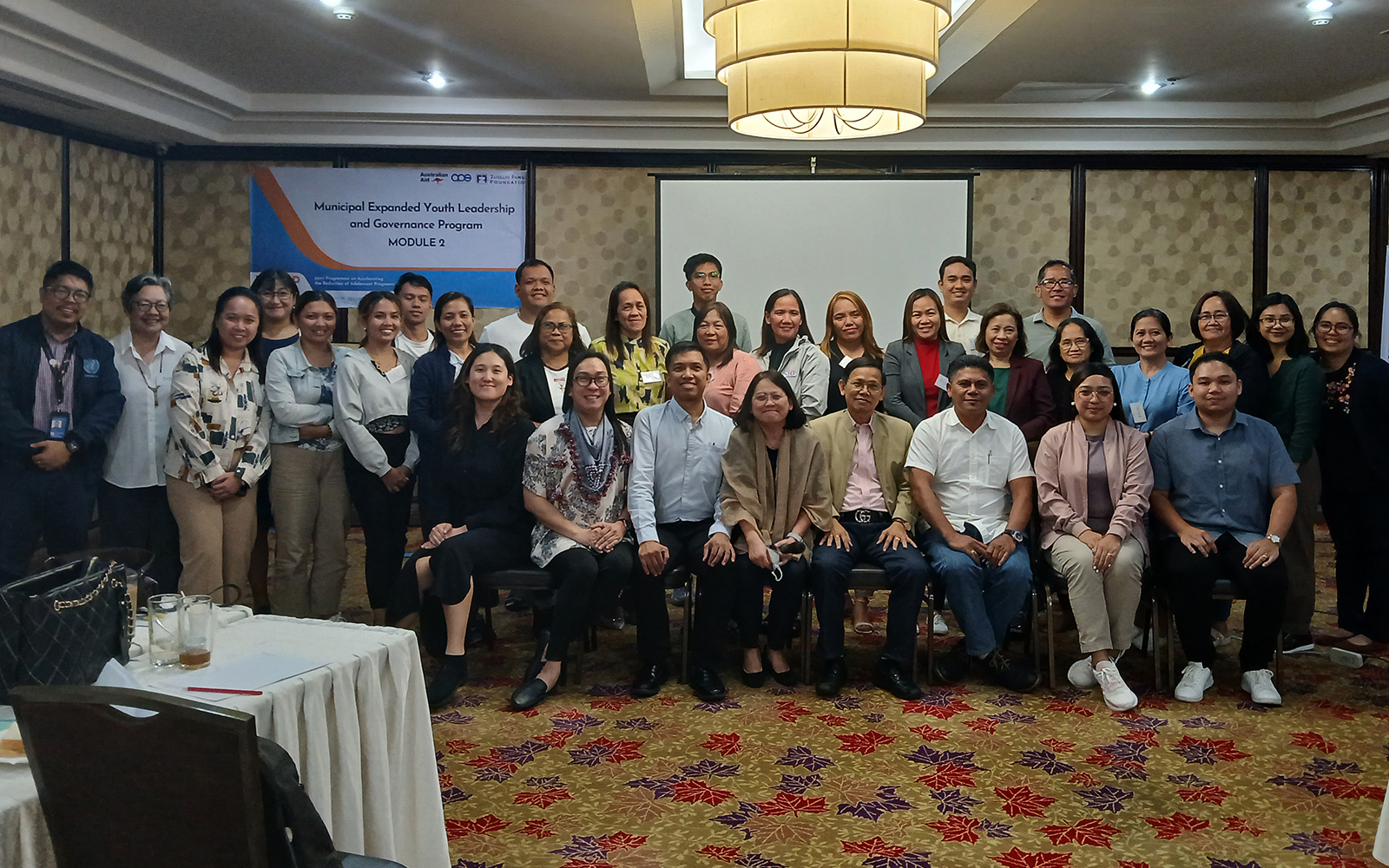Municipal Leaders in Samar Celebrate Successes in Reducing Teen Pregnancies and Strengthening Health Systems
News

Forty municipal health and youth leaders from Marabut, Santa Rita, San Sebastian, and San Jose De Buan, Samar gathered at the Ramada Hotel in Manila for the second training module of the Municipal Expanded Youth Leadership and Governance Program (MEYLGP) from August 26-28, 2024. This training, organized by the Zuellig Family Foundation (ZFF) under the Joint Programme on Accelerating the Reduction of Adolescent Pregnancy in Southern Leyte and Samar (JPARAP) with UNFPA, focused on building leadership skills and celebrating progress in adolescent health and local governance over the past year.
The local government units (LGUs) shared their successes, highlighting increases in contraceptive use, reductions in adolescent pregnancies, and the creation of roadmaps to improve youth sexual and reproductive health.
Key Achievements and Changes
In Marabut, Mayor Percival A. Ortillo Jr. has been a strong advocate for tackling adolescent pregnancies. The town saw a troubling rise in teenage pregnancies in 2022, with 23 cases reported. Thanks to targeted programs and youth involvement, this number has dropped significantly to just 7 cases in 2024. This change demonstrates the effectiveness of their health initiatives.
One challenge has been encouraging young people to use contraceptives. Traditionally, only those who had given birth sought family planning. Now, Marabut has seen a 3.2% increase in modern contraceptive users from 2022 to 2024, indicating progress in changing attitudes.
Additionally, Marabut has maintained a zero maternal mortality rate from 2022 to 2024, showing improved access to healthcare services.
Mayor Ortillo’s team also focused on refining Marabut’s health strategy, reducing key problem areas from many to just three: comprehensive sex education, low prenatal care among teens, and limited contraceptive access. Efforts are ongoing to tackle these issues through cooperation with local schools and healthcare providers.
The Rural Health Unit (RHU) in Marabut is moving toward becoming a Level 2 Adolescent-Friendly Health Facility (AFHF), which will enhance its services for young people.
The KADA Network (Key Assistance for Developing Adolescents) has been launched to support adolescent health. This initiative, backed by the Department of Health, equips local leaders with resources to help youth make informed decisions about their health. Services will soon be expanded beyond schools to local barangays, making them more accessible.
While the budget is tight, Mayor Ortillo believes that dedication and support are key. His leadership is setting an example for other towns in Samar, encouraging them to prioritize youth health.

Learning from Each Other
At the training, leaders shared their experiences and strategies for improving adolescent health. This collaborative approach allows them to learn from each other’s successes and challenges.
In San Sebastian, Mayor Ferdinand T. Gaviola noted fluctuating trends in adolescent pregnancies over the past four years. After a drop to 7 cases in 2023, the number surged to 23 this year. The reasons are still being explored, but the mayor’s administration is now focusing on local policies to improve adolescent health and increase access to contraceptives.
In Santa Rita, the mayor, a former youth leader, is committed to fighting teenage pregnancy. The municipality has seen a rise in contraceptive use and maintained zero mortality rates since 2022. They have redesigned health programs to better serve teens and are integrating these initiatives into their governance plans.
Both municipalities are working on local roadmaps to guide their adolescent health initiatives and ensure lasting impact.
Ongoing Challenges
Despite progress, these towns still face hurdles, such as cultural resistance to family planning, financial limitations, and the impact of family dynamics and peer pressure on youth behavior. Issues like exploitation and early marriages also complicate efforts.
Addressing these challenges requires ongoing commitment and community engagement. Local leaders are determined to continue raising awareness and mobilizing resources to reduce adolescent pregnancies.

Commitment to Continued Progress
The training ended with each LGU creating six-month action plans to build on their achievements. Participants committed to strengthening local policies and increasing community involvement.
The training also featured research from the University of San Carlos, shedding light on challenges facing Filipino youth, such as child marriages. This insight emphasized the need for a comprehensive approach to youth development.

Looking Ahead
The MEYLGP Module 2 training showcased the power of local leadership and collaboration. A second batch of training is scheduled later this year with more LGUs joining the effort to improve adolescent health in Samar.